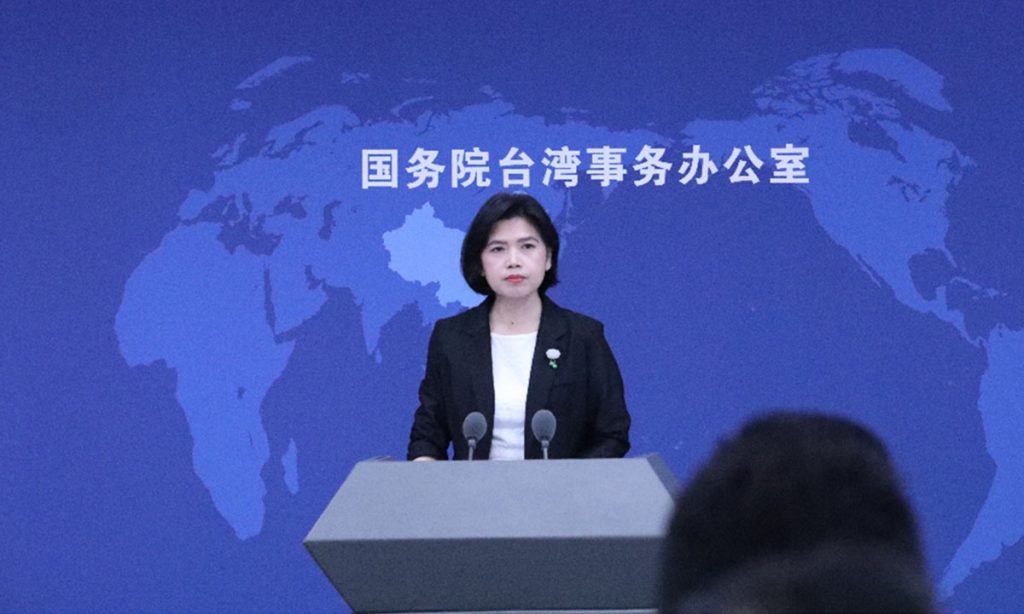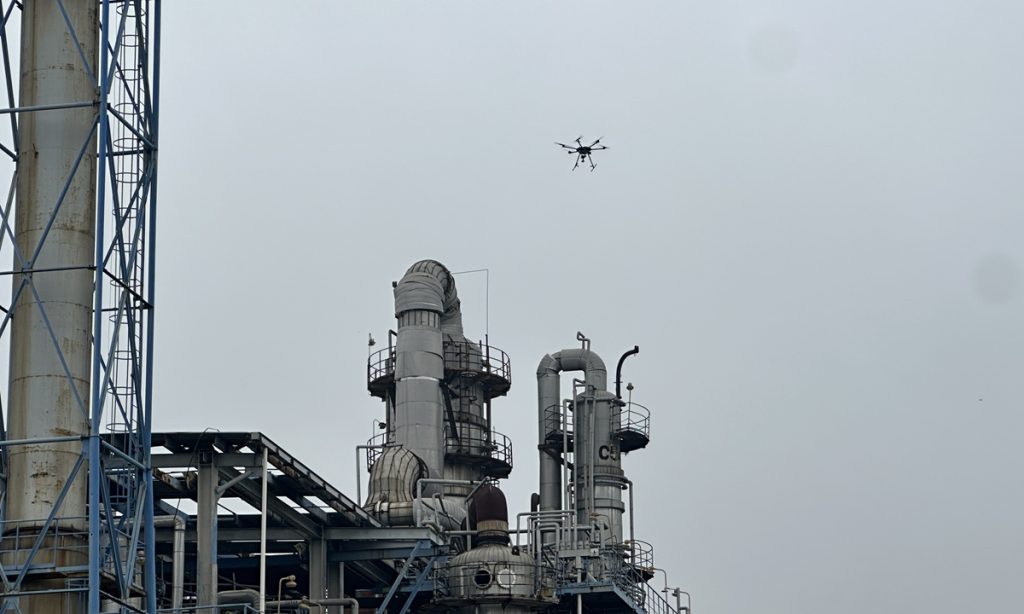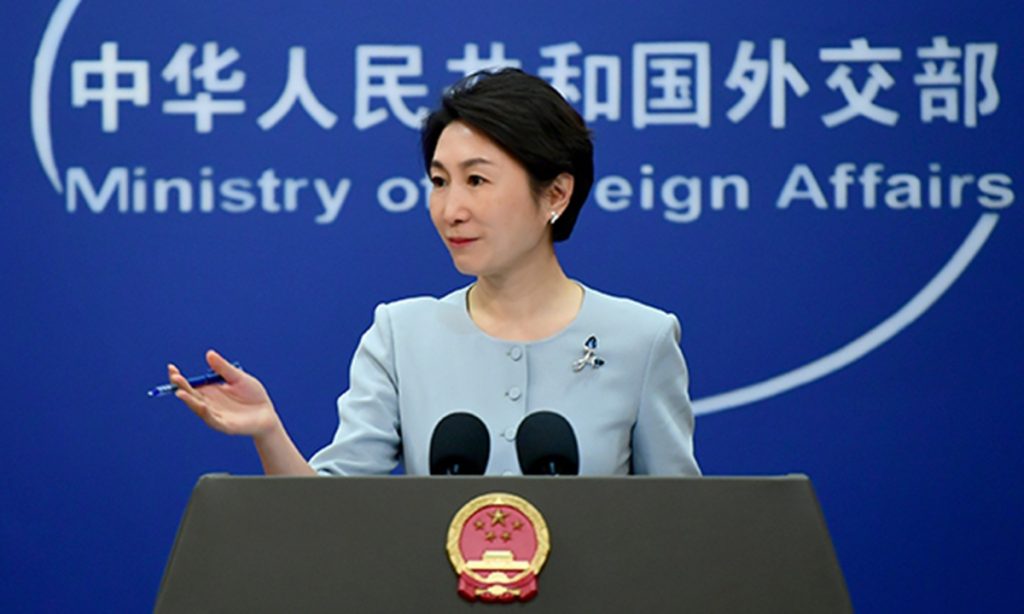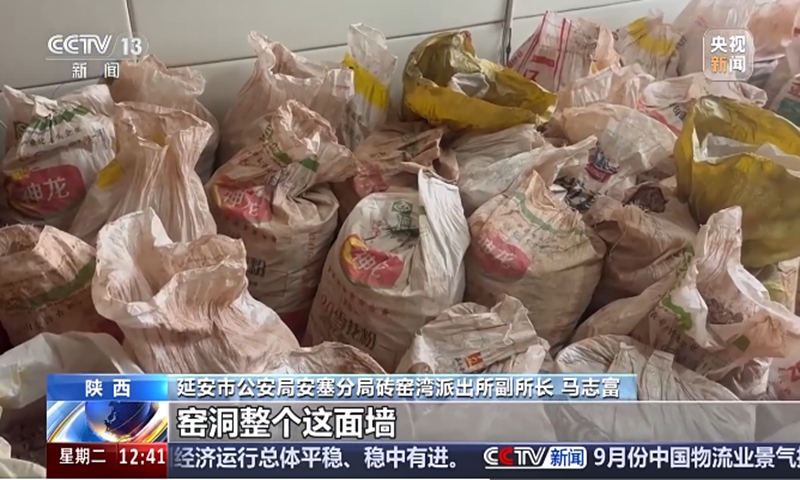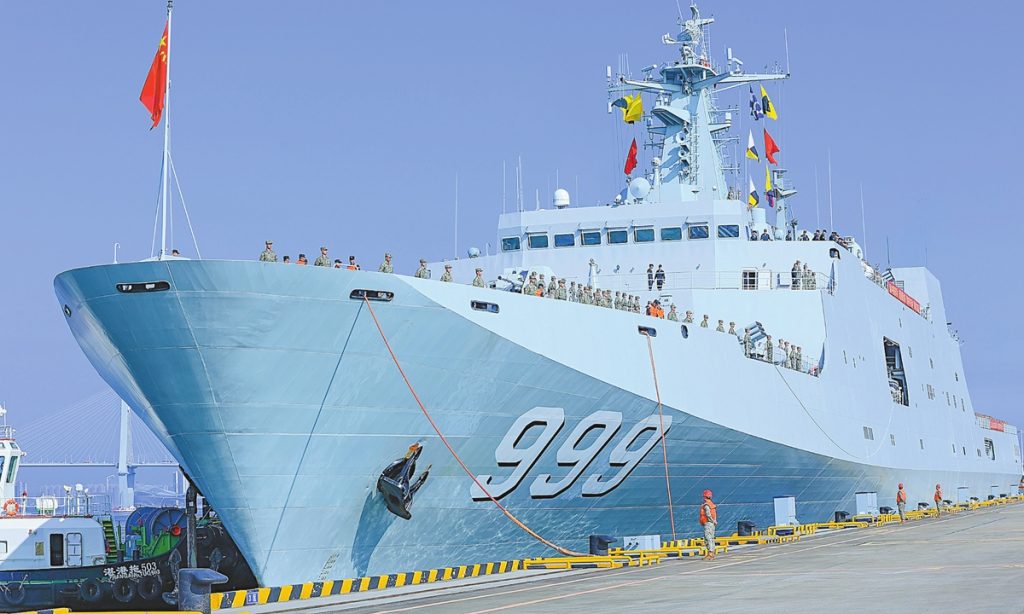Witness to History: Chinese scholars' deepened research on PICs underscores growing ties

Editor's Note:
As the relations between China and Pacific Island Countries (PICs) have entered a new era, underpinned by comprehensive cooperation across the political, economic, and cultural fields, Chinese researchers have also been witnesses to this deepened relationship through enhanced research on these island countries. In an interview with the Global Times, they shared the common feeling that "a decade ago, we did not know each other very well, but today, we can say that we are true friends."
This story is also part of the Global Times' "Witness to History" series, which features first-hand accounts from individuals who were at the forefront of historic moments. From scholars, politicians, and diplomats, to ordinary citizens, their authentic reflections on the impact of historical moments help reveal a sound future for humanity through the solid forward steps taken in the past and the present.
China and PICs are connected by shared blue waters. In recent years, China's relationship with PICs has warmed rapidly, with expanding cooperation in various fields including politics, economics, and culture. This trend is evident not only in high-level exchanges and policy coordination, but also in academia's growing focus on research related to PICs.
An increasing number of universities and research institutions are paying attention to this "blue ocean," leading to a rise in both the quantity and quality of research output.
Professor Chen Dezheng, Director of the Pacific Island Countries Research Center at Liaocheng University, told the Global Times that these achievements not only illustrate China's growing research on PICs, but also symbolize the flourishing friendship and cooperation between China and these island countries.
Bonds of friendship
The friendship between China and PICs is based on similarities in various aspects including culture and living habits. In this regard, Shandong serves as a typical example.
"People in PICs generally have a 'fire worship' culture, such as performing torch dances to celebrate harvests and ward off evil spirits. In September 1985, during the 10th anniversary celebration of Papua New Guinea's independence, a magic acrobatic troupe from Jinan, the capital city of Shandong, was invited to perform locally. The superb performances by Chinese artists, especially the fire-breathing stunt that carried an air of Eastern mystique, captivated the Papua New Guinean officials and the public, who have a long-standing reverence for fire. This marked the beginning of a flourishing mutually beneficial friendship between Shandong and PICs," said Yu Lei, a senior researcher who has been studying PICs for over years from Shandong University.
According to the Fact Sheet: Cooperation Between China and Pacific Island Countries released by Chinese Foreign Ministry in May 2022, China and PICs have forged 22 pairs of sister provinces/states and cities.
The deep connection between Shandong and PICs nourishes Shandong researchers' studies in the field of PICs. Liaocheng University is regarded as a leader in China, holding a distinguished position in this specialized field.
The Pacific Island Countries Research Center at Liaocheng University, established in 2012, has made significant strides in academic research while playing a vital role in international cooperation and exchange.
The center has engaged numerous experts from China and abroad in the field of PICs studies.
Chen Dezheng told the Global Times that the center initially had fewer than 10 researchers but now boasts over 50 full- and part-time staff. The quantity and quality of their research have grown in tandem, with over 40 published works, including 14 volumes of The Annals of Nations on PICs. The center also undertook the writing of all entries related to PICs for The Encyclopedia of China (Third Edition), expanding the content tenfold to over 200 entries, enriching China's knowledge system on PICs.
Supported by the center, the China-PICs Cooperation Center on Climate Change was also established at Liaocheng University in recent years.
Beyond Shandong, as China deepens its relations with PICs, more institutions and universities are playing an active role in this field of research and exchange. For example, South China's Guangdong Province has continually sent medical teams and educational experts to PICs, considering their problems such as difficulties in accessing medical care and education.
When Global Times reporters visited the China-Pacific Island Countries Juncao Technology Demonstration Center in Nadi, Fiji, in August 2023, the reporters learned that professionals from the Fujian Agriculture and Forestry University in East China's Fujian Province have also organized some 40 training sessions across various locations in Fiji, benefiting nearly 2,300 individuals.
In 2024, forums focused on China-PICs relations have been particularly active.
On July 6, 2024 International Forum on Pacific Island Countries Response to Climate Change, hosted by the Center for Ocean Carbon Neutrality at Ocean University of China and sponsored by the International Association of Meteorology and Atmospheric Sciences (IAMAS), convened in Qingdao, Shandong Province.
On October 16, 2024, the Launch Event and Workshop on the Implementation of One Country One Priority Product (OCOP) Initiative for Pacific Island Countries took place in Nanjing, East China's Jiangsu Province. The event was attended by former Solomon Islands prime minister Manasseh Sogavare and representatives from various organizations, including the Food and Agriculture Organization of the United Nations (FAO) and the China-Pacific Island Countries Agriculture Cooperation and Demonstration Center.
Deepening interaction
"At the very beginning, my studies in PICs were an extension of my studies in Australia. But after more than a decade, I can always feel, during my interaction with my friends in PICs, that we are getting a deeper and deeper understanding of each other. China and PICs are real friends rather than donor and receiver," Chen Hong, who took up studies on PICs since 2007, told the Global Times.
Yu also noted a deepening tendency in the cooperation between China and PICs. "In recent years, the cooperation between China and PICs is even more pragmatic in cooperation, focusing on improving the quality of life for the island nations' people and promoting local economic and social development."
For example, a Chinese company-built fisheries industrial park in Papua New Guinea not only enhances the utilization of local fishery resources, but also provides thousands of job opportunities for the local people. The Chinese government has also decided to implement almost zero tariffs on marine products from PICs in order to facilitate their entry into the Chinese market.
China's police and security cooperation with PICs is also strengthening. After experiencing several regional upheavals, the governments and people of these island nations have increasingly recognized that public security is not only crucial for the overall development of their countries and the region but is also directly related to the safety of people's lives and property. Countries such as Papua New Guinea, the Solomon Islands, and Fiji have all enhanced their police cooperation with China to maintain social stability, Yu noted.
During the colonial period, local law enforcement systems in PICs were entirely established by Western military forces. For the local population, the only way to participate was to serve as servants or soldiers, essentially relegating them to a lower status. Once the colonizers left and the locals gained independence, a vacuum was created in the local security field. This was an extremely irresponsible approach, Chen Hong noted.
Now China's law enforcement cooperation with PICs is meant to help the island nations to develop their own abilities to safeguard law and maintain order. "We can see that from the 2023 Pacific Games in the Solomon Islands to the presidential elections held this April, both events went smoothly. Many professionals and my friends from PICs told me that this demonstrated that cooperation with China brought about a tangible long-term transformation in their societies," Chen Hong said.
The cooperation between both sides in addressing climate change has also deepened significantly. Climate change has been identified by the island governments and their people as the primary threat to national security, and they greatly appreciate China's support in this regard, according to Yu.
Climate change is a common challenge faced by countries worldwide, and the PICs are among the regions most threatened by climate change. In January 2022, a volcanic eruption in Tonga caused severe disasters such as tsunamis. China provided the first batch of post-disaster relief supplies and continued to aid Tonga in various ways. In April 2022, the China-Pacific Island Countries Climate Change Cooperation Center was officially launched. China has signed five project documents with PICs on giving them material climate change assistance under the framework of South-South cooperation, according to the People's Daily.
Shared pursuit for development
Deepening cooperation and friendship are based on mutual respect. Such equality and respect are reflected in every detail of the two sides' interactions.
"I have learned some Samoan out of personal interest. So, when I met a deputy minister from Samoa at a forum in Beijing this year, I talked with him in Samoan. He was so surprised and felt his culture and language being fully respected. Some people in the West might view Samoan as a backward language. Being able to talk with PIC people in their languages demonstrates that we treat each other as equals," Chen Hong said.
Western countries have provided substantial amounts of aid to PICs, but they gave most of the aid for their political and strategic aims, this is why they could not win the real friendship of PIC people, according to Chen Hong.
As Yu noted, China's cooperation with PICs focuses on developing local economies and improving people's livelihoods, particularly benefiting ordinary citizens. China's equal treatment, sincere assistance, and mutually beneficial cooperation with PICs are the strongest driving forces behind the continuous deepening of relations between these island nations and China.
Under the driving of mutual respect and understanding, China and PICs are working together for a better future. Such a tendency and feeling are also mirrored in Chinese researchers' studies in PICs.
In the Solomon Islands, there is an increasingly clear sentiment among officials and the general public regarding the importance of development. However, they struggle to find a clear direction in which to establish a modernization path suitable for their country's development. Some traditional systems, customs, cultures, and habits do not align with the needs of modern society. Although people have become aware of this, they find it difficult to apply them to actual practice, researchers from the Liaocheng University wrote in their observation diary on August 17, the eighth day of their visit to PICs this year.
Tonight is my last night in the Solomon Islands, and while writing this report, we can hear the sounds of local people celebrating the weekend outside my window. Over the last few days, we have not taken the time to appreciate the beautiful scenery here, but we have been constantly reflecting on the future development of the Solomon Islands, the researchers said.

